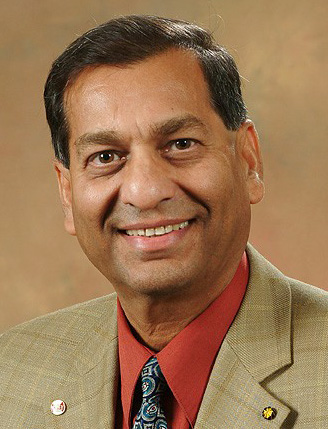 Prof. Suresh P. Sethi, PhD
Prof. Suresh P. Sethi, PhD
Eugene McDermott Chair Professor of Operations Management
Director, Center of Intelligent Supply Networks
Naveen Jindal School of Management
The University of Texas at Dallas
e-mail: sethi@utdallas.edu
webpage: https://personal.utdallas.edu/~sethi/index.html
Title of the invited lecture: Promoting Electric Vehicles: Reducing Charging Inconvenience and Price via Station and Consumer Subsidies
Authors: Lingling Shi, Suresh P. Sethi and Metin Cakanyıldırım
Operational decisions for a government are i) to incentivize EV ownership by a direct consumer subsidy, a station subsidy that reduces charging inconvenience, or by both subsidies; and ii) to minimize subsidy expenditure or to maximize EV adoption level. Environmental and energy independence concerns lead to government subsidies for electric vehicles (EVs). We model the interactions between the government and the charging supplier as a Stackelberg game and study the optimal structure of subsidies by incorporating charging inconvenience. We prove that this inconvenience is decreasing convex in the number of stations. In the expenditure minimization case, the optimal policy depends on the government adoption target and the charging station construction cost. If the adoption target is below a threshold that depends on the construction cost, the government provides pure consumer subsidy or no subsidy; otherwise, a combination of consumer and station subsidies is optimal. As the construction cost increases, the charger builds fewer stations, regardless of the subsidy type. We establish that expenditure minimization and adoption maximization yield the same subsidy policy if the charging inconvenience is linear. In a real-life case, we find numerically that a station subsidy alone is optimal if the construction cost is not low, but the adoption target is low. Besides, a long driving range significantly reduces the need for subsidies if the construction cost is high. In contrast, a long charging time necessitates high expenditure mainly allocated to a station subsidy.
Short CV:
Prof. Suresh P. Sethi is Eugene McDermott Chair Professor of Operations Management and Director of the Center for Intelligent Supply Networks (C4ISN) at The University of Texas at Dallas. He has contributed significantly to manufacturing and operations management, finance and economics, marketing, industrial engineering, operations research, and optimal control. He is well known for his developments of the Sethi advertising model, Sethi-Skiba points, and his textbook on optimal control.
He has written 11 books and published over 400 research papers in manufacturing and operations management, finance and economics, marketing, and optimization theory. He teaches an optimal control theory/applications course and organizes a seminar series on operations management topics. He initiated and developed doctoral programs in operations management at The University of Texas at Dallas UTD and the University of Toronto. He built the operations management area of UTD’s Naveen Jindal School of Management into its current research powerhouse.
He has received prestigious honors and awards such as IEEE Fellow, INFORMS Fellow, SIAM Fellow, POMS Fellow, AAAS Fellow, IITB Distinguished Alum, Tepper School of Business-Alumni Achievement Award, and POMS President (2012), INFORMS Fellows Selection Committee (2014-16), Alumni Achievement Award, Tepper School of Business, Carnegie Mellon University (2015).
Two conferences have been organized in his honor: in Aix en Provence in 2005 and at The University of Texas at Dallas in 2006, with Harry M. Markowitz, a 1990 Nobel Laureate in Economics, as the keynote speaker.
Also, two books have been edited in his honor. Production and Operations Management Society (POMS) has instituted a Suresh Sethi Best Interdisciplinary Paper Award every two years beginning in 2023.
He serves/served on the editorial boards of several journals, including Production and Operations Management, SIAM Journal on Control and Optimization, Manufacturing & Service Operations Management, Operations Research, Optimal Control Applications and Methods, and Journal of Mathematical Analysis & Applications.